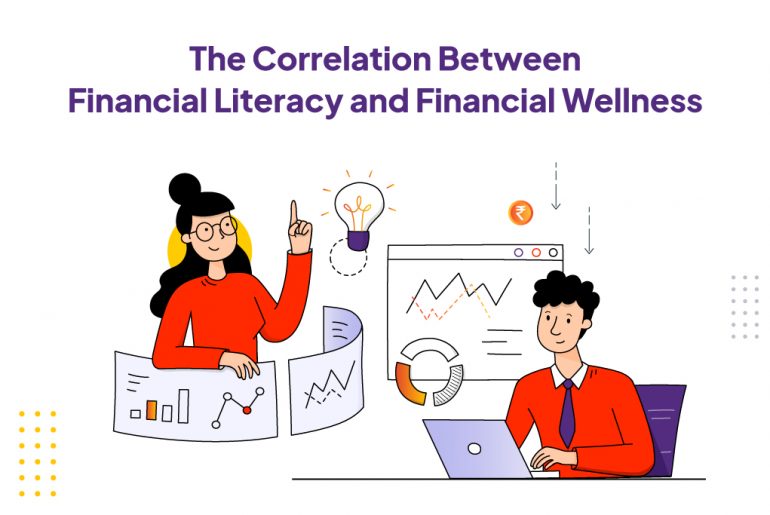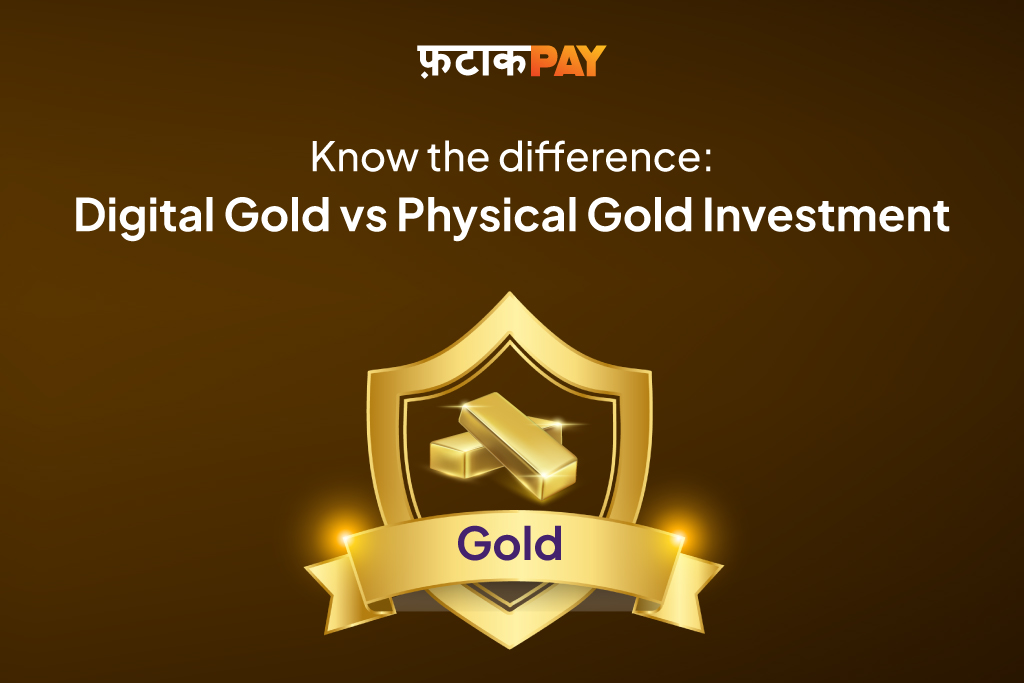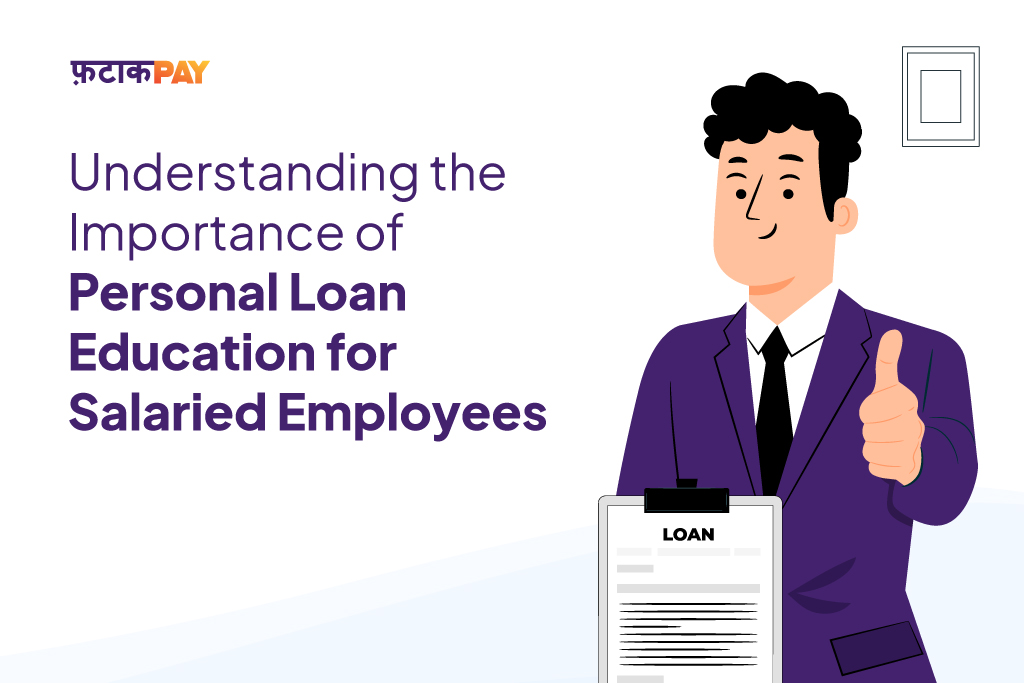As the world is heading towards modernity, the quality of life of people is increasing and so is the complexity of financial decisions. With every passing day, the industry is improving. It is the blessing of revolutionary improvement in every sector that brings various products and services to our plate every day. But the income is not dynamic as compared to the invention of new products or services. Income remains more or less the same or changes very little thus making it harder for us to manage expenses and stay up to date with the ever-changing environment.
Here comes in the picture, financial literacy. Your Financial literacy decides your relationship with money and ensures financial wellbeing by eradicating financial concerns. A financially literate person is able to analyze finances, plan the budgets, maintain savings without hampering the standard of life. Studies show that financial well-being is proportionately correlated with financial literacy.
Financial literacy educates a person about the methods of making money and holding them for the future. Whereas, Financial wellness is the overall state of well-being ranging from controlling the money effectively, to having financial stability, and security in the future. The skill of money gives the opportunity to make correct financial decisions. Making correct financial decisions doesn’t only mean knowing what to do but also knowing what not to do in order to avoid financial risks.
Factors Affecting Financial Wellbeing
Financial well-being is a cumulative result in the future based on every action taken in the present or in past. There are some factors that affect the financial wellness of a person. Try to reflect on them in daily practice which will compound into a better financial future. Some of the factors are-
Early exposure to financial knowledge
The major impactor on financial well-being is early exposure to financial knowledge. Though there is no specific time to start educating oneself about money, however, it is better to start early in age. Early exposure is recommended to avoid the high risks involved in experimenting with the techniques of making money. With age, risk appetite goes down and people start to seek security in every financial decision made.
Hence, it is recommended to get exposed to financial activities frequently.
Having a perspective
Having a perspective makes learning effective. Also, it is easy to monitor the progress if the learning is goal-driven. Since wellness is ensured by financial learning, it is recommended to have some perspective associated with learning. For example, make a short-term financial goal of let’s say 2 years and decide what you want your life to be in these two years. Plan accordingly and educate yourself. Similarly, back your long-term (5, 10, or 20 years) financial planning with extensive research to ensure a healthy future.
Making Right Financial Decisions at Present
The present decisions have a direct impact on future well-being. Some present habits and decisions may cause a huge impact on the future wealth status. Healthy habits such as saving a little chunk from every income, having an emergency fund, creating a personalized budget, analyzing every big or small purchase, and assessing their necessity; all will have an impact on the future wealth status of a person. Financial literacy is crucial to perform wise financial actions that will result in financial wellness.
Impact of Financial Literacy on Financial Wellness
It Boosts the Confidence
Financial literacy gives the confidence to perform financial actions. Financial wellness is measured by the freedom of choices made by a person, the effectiveness of financial goals made by the person, and the risk management quality. Financial literacy influences all of these thus impacting the financial wellness of a person.
Helps to Avoid Unforeseen Circumstances
Financial literacy is a road to financial well-being. It gives us the power to negotiate with the options available. Whereas, a poor financial condition, a result of poor financial knowledge, compels a person to submit to the existing situation with half heart. To keep oneself away from such unforeseen circumstances, he needs to stay updated with the latest money skills.
To Cope With the Everchanging Economy
With the industrial revolution, people are flooded with tons of options. Numerous options make financial decisions even tougher which may end up in making wrong decisions. Financial literacy is not just about making the right decisions but also to know how to avoid wrong decisions as well.
The quality of life has improved and at the same time, the pressure of making correct choices also increased. Now everything comes with an alternative. Hence, not having extensive knowledge about the concerned item may actually drain the hard-earned money, instead of saving it. Financial literacy guides a person to select appropriate financial instruments in order to fulfill a financial goal. Such instruments are stocks, FDs, health insurance, emergency fund, term insurance, loans, etc.
Having sound financial knowledge lowers the risks that come associated with these instruments. Not everything is risk-proof. However, one can reduce the risk with the right amount of planning.
Appropriate Age to Start Financial Education
The sooner the better. There is no such specific time to start with financial literacy. It can be started at the budding age of 10-14 years also. It is not necessary to teach them the entire family budget at this age. However, parents can start by telling them about their schooling expenses, tuition fees, material costs involved in the study, and so on. This will make them extra cautious about their spending that, in turn, will help them become responsible spenders. So that, when they will get exposed to the actual finances where they have to manage their own money, they will have sufficient experience to start with.
Any amount of financial knowledge during teenage will compound in later life and result in expert handling of money, assets, loans, saving, and everything that comes with money. In order to make a sound understanding of finance among teenagers, parents can shoulder the responsibility of grocery shopping for one week with a fixed amount of money. There they will understand how to manage expenses and also encourage them by giving away the saved money as a treat if they are able to save some chunk out of the weekly budget.
Parents may also teach their teenagers about how money works in the family by involving them in financial conversations. Let them know about the instant loan online status if there are any or make them aware of the saving techniques. Don’t let your teenager sit idle during the summer vacations. Tell them to get a summer job or do a paid internship. They will eventually learn to manage hard-earned money. They may eventually learn to save them for the future as well.
Financial literacy removes the confusion around daily financial decisions. FatakPay is giving the opportunity to everyone to manage their salary at ease. Its virtual credit facility helps to meet daily expenses without making chaos out of the numerous transactions that one has to make every day; be it school fees, grocery bills, electricity bills, mobile bills, restaurant bills, and much more. Fatakpay ensures highly secure transactions with their virtual credit card in a multilingual format with a scan now pay later facility.







